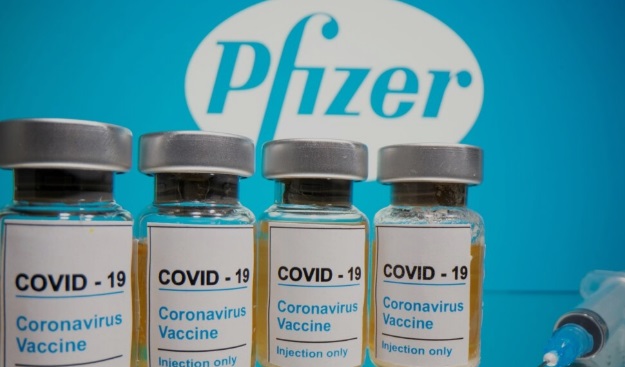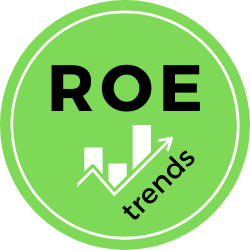Pfizer Stock Analysis

Pfizer Stock Analysis: ROE Trends and Innovation Driving Growth
Pfizer Inc. (PFE) is a global pharmaceutical leader with a rich history of medical breakthroughs, from its discovery of penicillin to its recent development of the COVID-19 vaccine. This Pfizer stock analysis delves into the company’s Return on Equity (ROE) over recent years, its growth strategy, strengths, weaknesses, and the competitive landscape it faces in the dynamic pharmaceutical industry.
What is ROE, and Why Does it Matter for PFE Investors?
Return on Equity (ROE) is a key financial metric that measures a company’s profitability in relation to shareholders’ equity. A higher ROE typically reflects better financial performance and stronger returns for investors holding PFE stock.
| **Year | ROE (%)** |
|---|
| 2013 | 23.6 |
| 2014 | 24.9 |
| 2015 | 26.5 |
| 2016 | 27.8 |
| 2017 | 25.3 |
| 2018 | 23.1 |
| 2019 | 25.7 |
| 2020 | 27.2 |
| 2021 | 46.1 |
| 2022 | 51.5 |
| 2023 | 30.2 |
| 2024 | 28.5 (projected) |
Pfizer’s ROE: A History of Resilience and Reinvention
Pfizer has demonstrated strong financial performance over the years, consistently delivering solid returns for investors. Its ROE has remained above 20% for most of the past decade, highlighting the company’s ability to adapt to changing market dynamics, introduce new drugs, and manage operations efficiently.
Key ROE Trends:
- Consistent Profitability: Pfizer has consistently maintained a healthy ROE, generally above 20%, signaling strong profitability and efficient use of shareholder capital.
- Surge in 2021-2022: Pfizer’s ROE saw a significant surge in 2021 and 2022, exceeding 45%, largely driven by the success of its COVID-19 vaccine (Comirnaty) and treatment (Paxlovid).
- Normalization in 2023 and Beyond: As the demand for COVID-19 products stabilizes, Pfizer’s ROE is projected to moderate in 2023 and 2024 but remains robust, reflecting the strength of its core business and ongoing innovation.
Investors should evaluate Pfizer’s ROE alongside other financial metrics and factors, such as its growth prospects, drug pipeline, and competitive positioning, to make informed investment decisions.
Understanding Pfizer: Breakthroughs that Change Patients’ Lives
To fully assess Pfizer’s investment potential, it’s crucial to go beyond financials and explore its strategic direction, strengths, weaknesses, and competitive environment.
Pfizer’s Purpose: “Breakthroughs that change patients’ lives.”
Pfizer’s mission is to deliver medical breakthroughs that significantly improve patients’ lives. This includes a strong commitment to:
- Research and Development: Pfizer invests heavily in R&D, aiming to discover and develop innovative medicines and vaccines across various therapeutic areas.
- Patient-Centered Focus: Addressing unmet medical needs and improving health outcomes remain central to Pfizer’s strategy.
- Global Reach: Pfizer continues to expand access to its medicines and vaccines worldwide.
- Sustainability: The company is committed to operating sustainably and responsibly.
Strengths and Weaknesses of Pfizer
Strengths:
- Strong Portfolio of Innovative Medicines: Pfizer has a diverse portfolio of blockbuster drugs, such as Prevnar (pneumonia vaccine), Eliquis (blood thinner), Ibrance (breast cancer), and Xeljanz (rheumatoid arthritis).
- Robust Pipeline: The company’s pipeline includes promising drug candidates in areas like oncology, cardiovascular diseases, inflammatory diseases, and rare diseases, positioning it for future growth.
- Global Scale and Resources: As one of the largest pharmaceutical companies in the world, Pfizer has significant resources and a broad reach to support its R&D and acquisition strategies.
- Manufacturing and Distribution Expertise: Pfizer’s extensive manufacturing and distribution capabilities allow it to efficiently produce and deliver products globally.
Weaknesses:
- Patent Expirations: Patent expirations pose a significant challenge for Pfizer, as they can lead to increased competition from generics and reduce revenue from key products.
- High Competition: The pharmaceutical industry is highly competitive, with numerous players vying for market share. Pfizer must continuously innovate and differentiate its products to maintain a competitive edge.
- Dependence on Blockbuster Drugs: Pfizer’s performance can be significantly impacted by the success of a few blockbuster drugs. Any challenges or increased competition for these products could affect revenue and profitability.
- Pricing Pressures: Pfizer faces pricing pressures from governments, healthcare payers, and public scrutiny, which can impact its profitability.
Pfizer’s Competitors: The Global Pharmaceutical Landscape
Pfizer competes with several major pharmaceutical companies on a global scale:
- Johnson & Johnson: A healthcare giant with a diverse portfolio of pharmaceuticals, medical devices, and consumer health products.
- Novartis: A global healthcare company with strengths in pharmaceuticals and eye care.
- Roche: A leading biotech company specializing in oncology, immunology, and diagnostics.
- Bristol Myers Squibb: A biopharmaceutical leader in oncology, immunology, and cardiovascular diseases.
- Merck & Co.: A major player in oncology, vaccines, and diabetes treatments.
Pfizer’s Key Projects
- Oncology Pipeline: Pfizer is developing new cancer therapies, including targeted therapies, immunotherapies, and antibody-drug conjugates.
- Vaccine Development: Pfizer continues to invest in vaccine R&D, focusing on infectious diseases like COVID-19 and pneumococcal disease.
- Rare Diseases: Pfizer is expanding its portfolio of treatments for rare diseases, aiming to address underserved patient populations.
- Hospital Business: Developing treatments for conditions treated in hospitals is a key focus for Pfizer.
- Internal Medicine: Pfizer is working on treatments for cardiovascular diseases, inflammation, and immunology within internal medicine.
Pfizer’s Future: Driving Innovation in a Changing Healthcare Landscape
Pfizer’s future growth will depend on its ability to continue innovating and bringing new medicines and vaccines to market. Key factors that will influence its success include:
- R&D Productivity: Pfizer’s long-term growth hinges on its ability to discover and develop new, effective treatments.
- Commercial Success: Launching and marketing new drugs and vaccines successfully will be crucial for driving revenue and maintaining profitability.
- Competitive Landscape: Pfizer will need to remain competitive in a rapidly evolving pharmaceutical industry.
Conclusion: Is Pfizer (PFE) Stock a Good Investment?
Pfizer is a leading pharmaceutical company with a strong track record of innovation, a diverse portfolio of medicines and vaccines, and a massive global presence. While the company is well-positioned to benefit from the growing demand for healthcare solutions, investors should weigh the risks and opportunities in the pharmaceutical sector, including patent expirations, regulatory challenges, and fierce competition. This Pfizer stock analysis provides a comprehensive look at the company’s strengths, growth prospects, and financial performance, helping investors make informed decisions about PFE stock.

